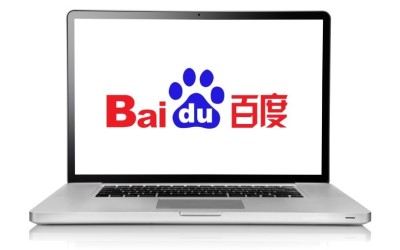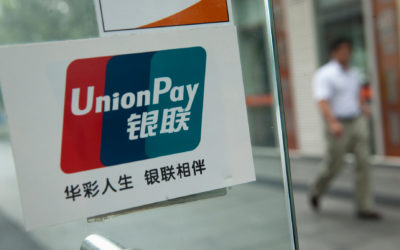Our China Blog
Pros and Cons of Hosting a Site in China
Foreign websites that are looking to target Chinese audience are often presented with the dilemma regarding physical location of their server. There is also a lot of conflicting information about whether local hosting is important, as well as to what degree it affects site’s performance and ranking in the search engines.
In this post, we attempt to summarize various pros and cons of having your site hosted in China. read more…
WeChat Marketing Checklist: Where Should You Place WeChat QR Code
Promoting brand’s official WeChat account is the trickiest part of WeChat marketing. Scanning WeChat QR code is the primary method for the followers to subscribe to a WeChat account but where should you display it? Companies have been trying hard to make sure that it shows in every place where there is a chance to get a smartphone camera pointed to it and some have become quite innovative.
If your company has a WeChat account, you should go through our checklist to make sure that you have all the bases covered. read more…
5 Common Misconceptions About WeChat Marketing
In the last couple of years, WeChat marketing has been a hot topic. The app is, by far, the most used one in China and it is estimated to be installed on over 90% of smartphones. The combination of the enormous potential reach and the possibility for brands to connect with their customers in the most intimate way makes WeChat marketing one of the important components of the overall marketing strategy.
On the other hand, many foreign brands, who want to jump in on WeChat, don’t realize that the platform comes with the number of limitations. While in some cases and if done right, WeChat marketing can be incredibly effective, in other cases the results can be quite disappointing. read more…
Looking for love in China? The List of 8 Most Popular Chinese Dating Apps
Here is our review of the most popular Chinese dating apps:
(more…)Competitive Research in China, Part III: Chinese Social Media Channels
Continuing the series of articles on conducting basic market research in China, in this post I will be explaining how Chinese social media channels can be used for that purpose.
In China, Sina Weibo and WeChat are two most popular platforms. Sina Weibo has evolved around desktop use while WeChat only works with mobile. I have already those platforms in much more details in this blog. For now, suffice it to say that, for the purpose of market research, Weibo is much more suitable and this is what I will be focusing on. read more…
Competitive Research in China, Part II: Chinese Marketplace Sites Search
This post is the second part on conducting basic market research in China and it is about searches on Chinese marketplace sites. In the first part, we have discussed using Baidu for basic market research with search engines.
If you are selling a physical product, one of the best ways to find out what is already available is to research Taobao (Taobao.com), the primary C2C marketplace in China and its B2C equivalent, Tmall (tmall.com). Both platform belong to Alibaba and are similar to Amazon but much bigger. read more…
Competitive Research in China, Part I: Baidu Search
Every proper marketing campaign in any market should first start with market research. Fortunately, it doesn’t always have to be an expensive market study, complete with complex competitive analysis and forecasts. Often times, a simple internet research, such as with Baidu search engine, would do just fine, but, of course, you should first know where and how to look.
This post is the first one in the upcoming three part series covering basic market research in China. read more…
Chinese Payment Systems Overview: Union Pay
Union Pay is the state run credit and debit card system with the largest reach in China and overseas. Online, it is competing with AliPay and WeChat.
How WeChat App Is Changing Restaurant Business in China
WeChat app is transforming daily lives of millions of people in China. This is how it helps restaurants to run more efficiently and deliver better value.
Recent proliferation of Western style coffee shops and fancy restaurants gave rise to the new trend of ordering food and drinks with WeChat rather than using traditional menus.
Besides the fact that WeChat app is already installed on practically every smartphone in China, vast majority of users have also connected their accounts to bank cards and use WeChat Pay on regular basis. read more…
Why O2O in China Keeps Growing
O2O, which stands for Online to Offline (or, sometimes Offline to Online) has been one of the hottest topics in marketing in the last couple of years. It has been identified as a trillion dollar opportunity by TechCrunch as well called the industry’s stupidest acronym by Tech in Asia. While some marketers still disagree on how the term should be used, O2O in China has been growing by leaps and bounds and is getting ahead of most other markets.
Basically, anything in the digital world that brings customers to the physical stores or makes them buy products and services that are traditionally sold offline can be classified as O2O. read more…
Prospects of Facebook Marketing in China
As almost everyone knows, one of the unique features of Chinese digital marketing landscape compared to the rest of the world is seeming irrelevance of Facebook, one of the world’s largest digital advertisers. As a result, Facebook marketing in China isn’t a channel that marketers would typically consider adding to the mix. The platform has been blocked by Chinese government since 2009 and the only way to access it from the Mainland is by using VPN service.
Eight years of Facebook’s absence in China gave more than enough time for local competitors to emerge and, ultimately, dominate the market. While some of the earlier Facebook Chinese clones fell into relative obscurity, WeChat and Weibo took the lead and have reached the position of almost unrivaled dominance. read more…
Infographic: Online Behavior of Chinese Millennials
In this post, we’d like to share a new Infographic by Hylink on Chinese Millennials – people born in between early 80s to early 2000. Just it is the case with other countries, Chinese millennials are often described as “digital natives”, having grown up along with the development of new technologies.
What is unique in China’s millennials who are born around 90’s is the their size – 211 million which is already 5 times larger than their US counterparts. Perhaps not surprisingly, they are also glued to their phones – 50% reported checking their cellphones every 15 minutes.
Social media is the main source information for 70% of Chinese millennials and they spend almost twice the time of Americans watching online videos. read more…
How to Succeed in B2B Sales in China
Selling to Chinese businesses can be a daunting task, especially for a Western company which is not experienced enough in operating locally and expecting Chinese following the decision making process that is common in North America or Europe. One of the principal differences is the fact that most Chinese businesses are not run in the same structured manner as in the West, which also defines their purchase cycle.
First of all, in B2B settings, many stages of this cycle run concurrently rather than sequentially: request for a quote can be issued before all the potential suppliers are contacted and shortlisted or the spec is finalized. read more…
How international businessmen can improve their Chinese?
Having witnessed the rapid growth of China’s economy over the past decade, more and more foreigners started to consider going to China to develop their careers.
Infographics: Chinese Internet Ecosystem And Stats
Chinese internet ecosystem has always been a whole different world with none of the platforms imported from the West ever managing to have any impact on this market.
China Coronavirus Outbreak: Separating Facts from Fiction And Our Analysis
There is a hardly a bigger story than the recent China coronavirus outbreak. The news and stories online and especially in social media range from doomsday scenarios to “just another harmless flu” with various conspiracy theories in between.
In this post we gathered some up-to-date stats and a translated piece from respectable Caixin site followed by our own analysis.
read more…
Infographic: China Internet in One Minute
What’s happening in one minute on China Internet? Actually, quite a lot! The folks in TechInAsia went on to to figure that out, producing this impressive infographic. It sums up some of the action that takes place in China’s digital online world in just 60 seconds.
Here are just some of the most impressive nuggets on what has happened on one minute on China Internet:
10 Interesting Facts About China’s Richest Man Jack Ma
Jack Ma, the legendary founder of Alibaba and China’s richest man has just announced his retirement. Here are some of the less known facts about him.
There are many things that make Jack Ma unique among China’s business elite, such as his humble upbringing and lack of political connections from the start. Also, as opposed to most founders of successful internet and tech companies in China such as XiaoMi (Lei Jun), Tencent (Ma Huateng) or Baidu (Robin Li), Jack Ma never had any technical background or training.




















